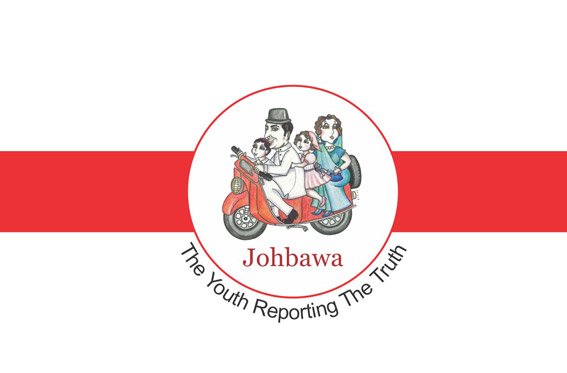Facilitating Behavior Change in Complex Waste Management Systems
Natasha Zarine shares how a nonprofit in India took a people-first approach to sustainably change waste management practices.
ADDRESSING AN URGENT URBAN ENVIRONMENTAL CHALLENGE
Civic Response Team (CRT) is a nonprofit that started in May 2015 to build evidence-driven solutions to civic and environmental challenges. One of the biggest initiatives they’ve undertaken is transforming the solid waste management system in Aurangabad, India.
Solid waste management is the most pressing civic and environmental challenge in many Indian cities. Civic Response Team knew that they would have to get creative–and collaborate with local government leaders–in order to effectively tackle this issue. So they looked at solid waste management best practices in other cities and compiled a report, which they presented to the municipal commissioner of Aurangabad in the hopes that he would be able to concretely replicate some of these initiatives.
However, there were thirty years of waste management practices to shift. Open waste dump sites were still the norm. Sanitation staff worked without protective equipment and in hazardous and undignified conditions. The commissioner didn’t have the required resources to implement the recommendations made by Civic Response Team
As a result, the organization realized they would need to get more directly involved in overhauling the municipal waste management system and undertake a holistic approach that worked with multiple stakeholders and addressed root causes to shift behaviors. After much hard work, they began offering coordinated waste management services and piloted their offerings with pilots of 500 households. Over time, they began serving wards of 1000 homes and today even work with full townships of 30,000 people.
Tackling the problem at this scale required a multi-disciplinary approach.
They needed to map the pain points, educate local communities on the benefits of improving solid waste management, make changes to bylaws and regulations, consider budget requirements, and modify the practices of the sanitation department team.
THINKING IN SYSTEMS
Very early into this work, Civic Response Team realized it would be critical to consider the whole system surrounding this problem of waste management–rather than just trying to clean up trash from the streets in isolation from the larger community dynamics and political power structures.
 Co-founder Natasha Zarine explains, “We knew that unless we think in systems, it’s all going to go back to square one.”
Co-founder Natasha Zarine explains, “We knew that unless we think in systems, it’s all going to go back to square one.”
In fact, they initially found that changes implemented in a pilot group of 500 households would hold for about six months before falling apart. The changes didn’t stick “because it was a little oasis in a larger context, within a larger system that didn’t change.” The organization recognized that for the system to truly shift, they needed “the buy-in of multiple stakeholders, including the leadership of municipal leadership.”
Municipal staff is generally supportive of the changes but Natasha found it was critical “to manage relationships at the highest level of the municipal administration and elected representatives.”
She recounts the experience with one waste management supervisor who had been working for 30 years running 14 wards of the city. Although he had amassed significant political power over his career, it was only when he began collaborating with Civic Response Team that he began to feel that his work offered dignity. “It is the first time in his life that he feels good about his work, that he feels he can do his work effectively, that he feels he’s doing the right thing,” Natasha says,
Previously, he didn’t feel proud to ask his staff to do their work, but there were no alternatives. Now, “he’s like our star sanitary inspector. He ensures that all the staff is well taken care of, that the work is happening effectively, he proudly speaks about the amount of public money he’s able to save because of the way his zone is managed, managing our waste.”
Cultivating these relationships and finding champions within local government has been critical to Civic Response Team’s ability to durably shift waste management practices in Aurangabad.
UNINTENDED CONSEQUENCES FOR WASTE-PICKERS
Natasha and her colleagues also quickly recognized that they did not only have to consider powerful political figures if they wanted to change the system. They also needed to think about the downstream consequences that their seemingly positive interventions might have on some of the city’s poorest residents: waste-pickers.
In Aurangabad, there are approximately 600 waste-pickers who make their livelihoods by sorting through trash and finding bits that can be resold. Under the new, more efficient waste collection processes that Civic Response Team was rolling out, the trash pickers would no longer have access to waste coming directly onto the streets. Natasha realized that if they altered the current system significantly, there were going to be negative downstream economic consequences for some of the city’s poorest inhabitants.
To mitigate these unintended consequences, Civic Response Team identified the waste-pickers working in each ward and invited them to join a sorting facility.
They did not have the budget to pay a salary and at first wondered how they would effectively get waste pickers to shift their behavior and adapt to this new system. They discovered that if they concretely communicated to the workers that they would get direct access to 300 to 500 KGs of dry waste, of which 70% is recyclable, they were eager to adapt. An added bonus was that–because the waste was no longer soiled—workers could recover much more for recycling and selling.
As they began working at the sorting facility, waste-pickers were able to more than double their income. Previously, they earned about 210 rupees a day, or $3. However, now working at the sorting center they earn on average 450 rupees per day, or $7. They also benefit from more regular working hours, more family time, fewer cuts and bruises, and more dignity. Critically, they now also take pride in their work and are happy to tell people they work at the sorting center. Word quickly spread.
Civic Response Team has now trained over 1800 sanitation staff and worked with 105 waste-pickers.
One waste-picker who they met in the first pilot has done so well she was invited to speak at a UN conference in Paris about recycling to share how it has impacted her life and how it affects the environment.
This woman’s entrepreneurial spirit led her to take a leadership role, going on to recruit three friends to work at the first recyclable waste center. She soon started managing it and “is an owner in a way because she manages everything – she gets the profits, she distributes, she makes payments to the other waste pickers who are working with her. It’s been running for four years without anyone else’s intervention because she’s understood not only the business of collection and recycling but also managing a sorting center,” Natasha says.
SHIFTING COMMUNITY BEHAVIORS
One of Natasha’s most notable learnings is that waste management is all about people. You need to understand “their behavior, their relationship to waste, their relationships to each other, to their past, to their religion or their beliefs…It’s extremely complex.”
Natasha describes how complex challenges like these need a technical solution but mostly require adaptive leadership.
Adaptive leadership recognizes that both shared ownership and continuous learning are central to achieve lasting behavior change. As Natasha shares, when people think of solid waste management, they think you need, “vehicles for collection, composting machinery, biogas plants, etc. which are definitely an important part, but it’s all about people.”
The other element of behavior change that surprised Natasha is that people are ready and willing to make changes when they directly see how their actions are impacting the environment and each other.
Another way to promote behavior change is to keep the steps small and incremental. In the communities that Natasha works with, it would be too large a jump to introduce home composting right away, but they will work towards this goal since it’s the most efficient way to manage organics. Natasha points out how technical solutions come into play, “this is where technology comes in. If we have the right type of products to help people compost at home and store their waste a certain way it creates a better buy-in for the overall waste management system.”
CRT is still in the process of figuring out the best balance of centralized facilities with decentralized home management for waste, recyclables, and organics.
NATASHA’S ADVICE FOR CHANGE-MAKERS
Natasha’s advice for others interested in exploring the link between social well-being, poverty, and environmental conservation is to “dive right in.”
Bringing together a team invested in the collective vision is essential to make change happen. Although CRT’s experience with recruited volunteers has been positive, especially for short-term commitments, CRT finds it necessary to set up the sustainable funding structures that can support paid staff positions.
Natasha explains, “You really have to stand your ground and insist on either getting funding or getting paid for your services because that’s the only way to be valued.” Even when doing important work, it will not always be recognized so holding the collective vision and having the necessary structures in place for financial sustainability allows the team to remain motivated and committed to moving the work forward.
Natasha speaks of the importance of using systems thinking, research, and on-the-ground experience to understand the nuances and complexity of the behaviors you are trying to change in a larger system you are working to address.
“There’s so much happening under the epidermis that covers everything, so be aware of that.”
Finally, where people and process interact for environmental change, managing relationships is everything. Relationships build trust, and trust is essential for any behavior change to take place. Natasha says, “If people know that you’re trying to bring about a certain kind of change, and not just coming from a certain agenda, then they’re much more willing to partner with you to take that change forward.”





